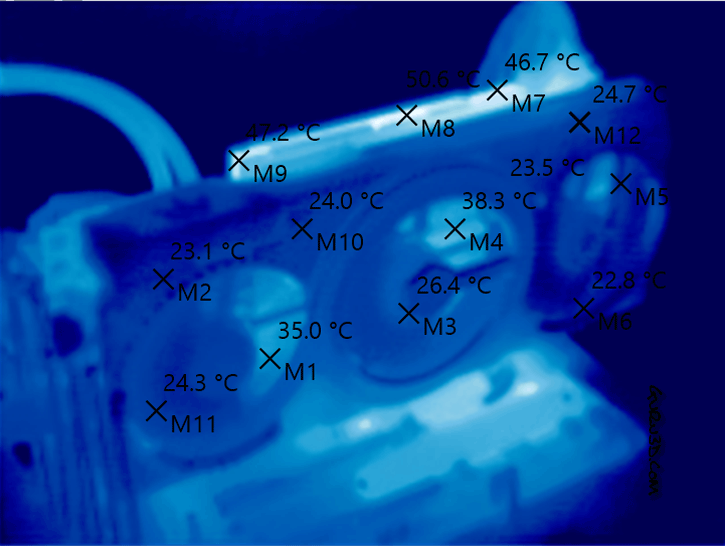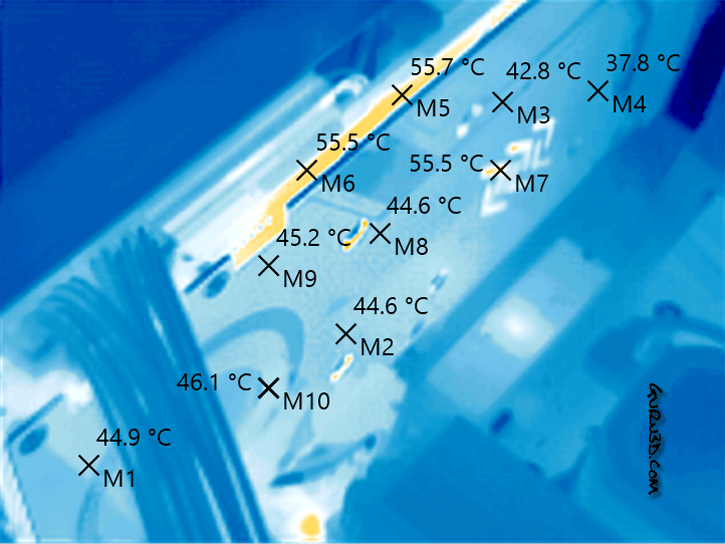Graphics Card Thermal Imaging Measurements (FLIR)
Thermal Imaging Temperature Measurements
To visualize heat coming from the product or component being tested more accurately, we make use of thermal imaging hardware, also what you know as a FLIR camera. FLIR is a brand, and short for Forward-looking Infrared. With a thermal imaging camera, a special lens focuses the infrared light emitted by all of the objects in view. This focused light is scanned by a phased array of infrared detector elements. The detector elements create a very detailed temperature pattern called a thermogram. It only takes about one-thirtieth of a second for the detector array to obtain the temperature information to make the thermogram. This information is obtained from several thousand points in the field of view of the detector array. The thermogram created by the detector elements is translated into electric impulses. The impulses are sent to a signal-processing unit, a circuit board with a dedicated chip that translates the information from the elements into data for the display. The signal-processing unit sends the information to the display, where it appears as various colors depending on the intensity of the infrared emission. The combination of all the impulses from all of the elements creates the image. We can see hotspots on the PCB indicating, for example, GPU but also VRM temperature as well as how heat is distributed throughout a product.
It is hard to make any comments on the thermals due to the completely closed and encapsulated design of the card. Nothing here worries me, however, you can see that the card exhausts hot air at the top side. BTW I have changed the coloring schema of the FLIR camera to make heat differences more visual coloring towards yellow and red.



